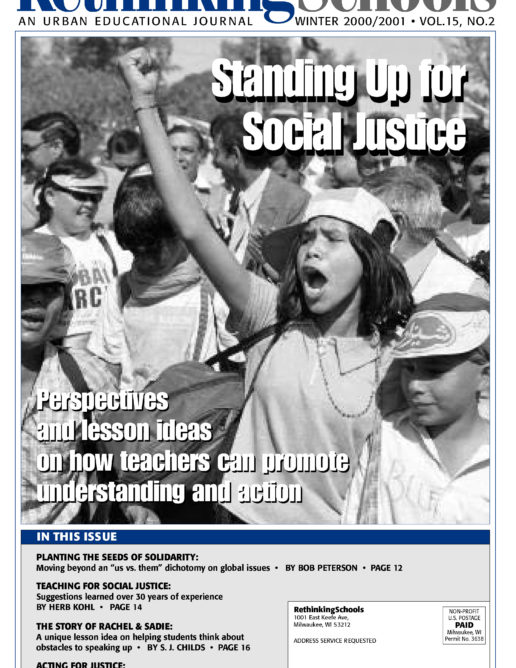Preview of Article:
Diversity Vs. White Privilege
Christine Sleeter explains why multiculturalsim, at it's core, is a struggle against racism, and must go beyond an appreciation of diversity.
The following is condensed from an interview with Christine Sleeter, a professor at California State University – Monterey Bay and co-editor of Multicultural Education, Critical Pedagogy, and the Politics of Difference. Sleeter was interviewed by Barbara Miner and Bob Peterson of Rethinking Schools.
Q: You stress the importance of multicultural education as a struggle against white racism, rather than multiculturalism as a way to appreciate diversity. Why?
Both historically and in contemporary society, the relationships between racial and ethnic groups in this country are framed within a context of unequal power. People of European descent generally assume the power to claim the land, claim the resources, claim the language. They even claim the right to frame the culture and identity of who we are as Americans. That has been the case ever since Columbus landed on the North American continent.
Generally, people of European descent still claim white privileges. This is particularly true of wealthy people of European descent. I know a lot of poor people who, while they reap the benefits of looking white, are certainly disenfranchised in many ways.
I keep going back to the fact that multicultural education came out of the civil rights movement. It wasn’t just about, “Let me get to know something about your food and I’ll share some of my food.” The primary issue was one of access to a quality education. If we’re not dealing with questions of why access is continually important, and if we’re not dealing with issues like why we have so much poverty amid so much wealth, we’re not dealing with the core issues of multiculturalism.
I know it may sound trite, but the central issue remains one of justice.</p

